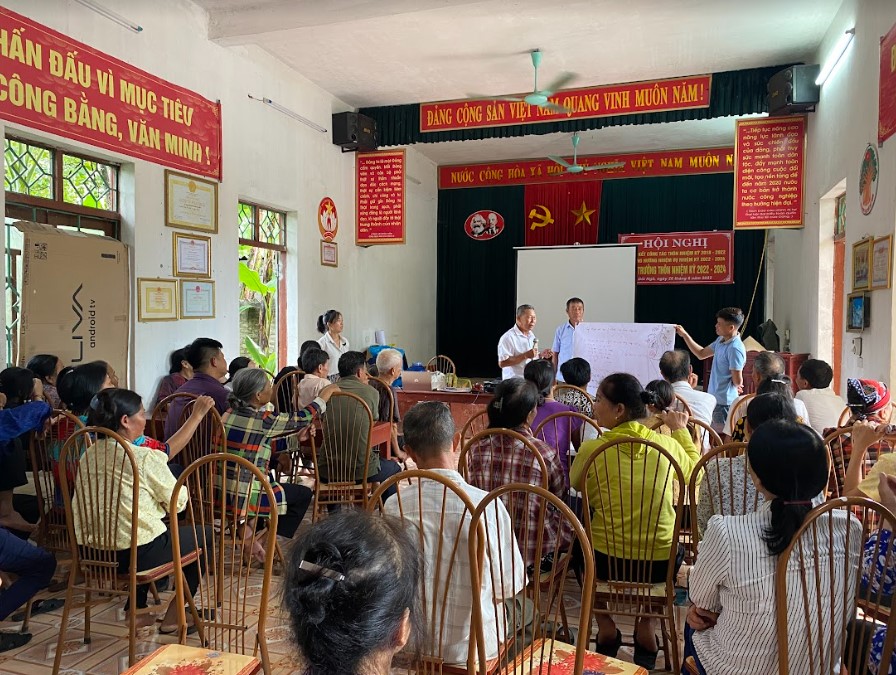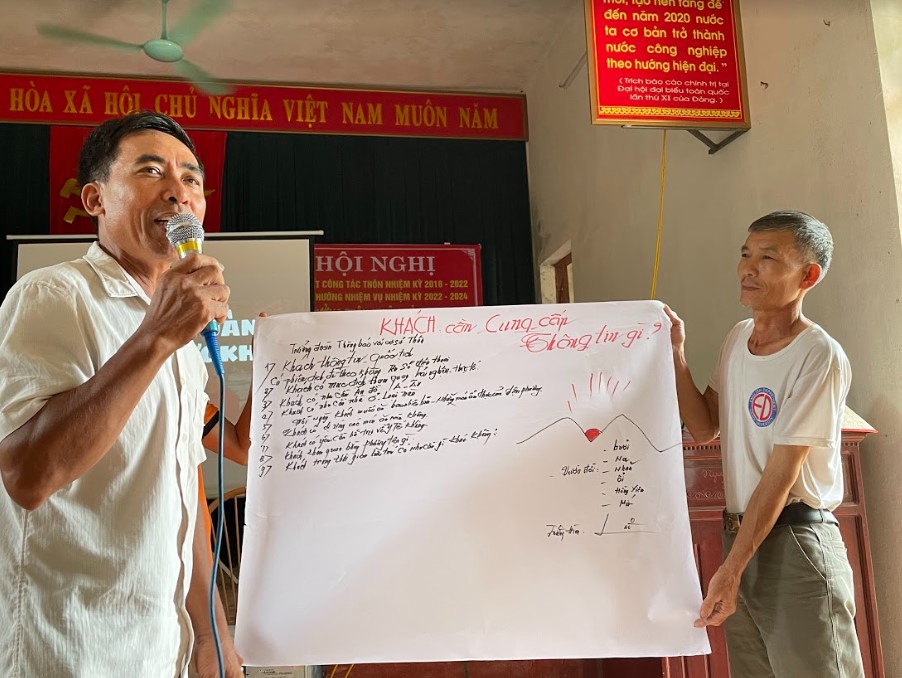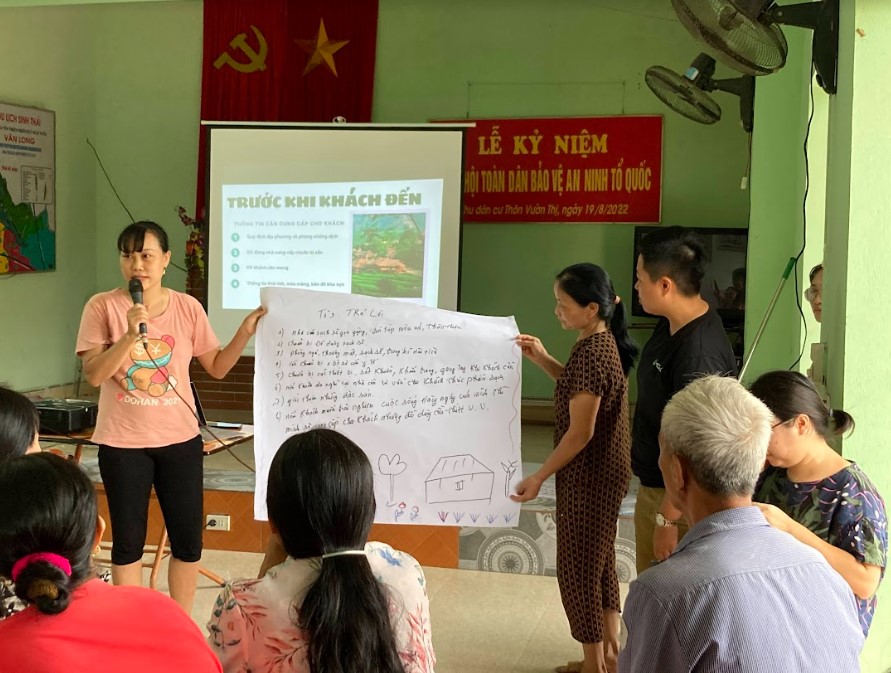“Thanks to the project’s workshop, we have a chance to sit together, have open discussions and be engaged in developing our community rules” - Mr. Trinh Van Kim (Doi Ngo village, Van Long NR).

In July and August 2022, our team in Vietnam conducted training on Health and Safety (H&S) implications in community tourism at Cuc Phuong National Park and Van Long Wetlands Nature Reserve.
With this activity, we aimed to provide suggestions on operational procedures to manage health risks for tourism-related experiences in a post-COVID-19 era. We also wanted to share public space renovation ideas to create a safe tourism environment in the communities and guide service providers in good practices for waste treatment.
A total of 58 people attended the H&S workshops at two villages in Cuc Phuong National Park and 125 at three villages in Van Long Wetlands Nature Reserve.
During these sessions, community members became aware of the Rules and Regulations in H&S and community tourism services proposed by local authorities and developed a Code of Conduct for H&S and Services, including a set of rules that guests should follow during their stay in the villages.

In addition, the local community agreed on an Action Plan for renovating the public space to create a clean, healthy, and safe environment to welcome guests. Some of the proposed interventions are:
- Transforming a designated area in Khanh village into a parking lot and planting tall trees to provide shade.
- Reducing waste in every household.
- Making the villages even more picturesque by planting more flowers and decorating trees in front of local family homes.
Community members have also compromised to follow H&S procedures when welcoming guests and gained knowledge about the cleaning and waste management processes.
While conducting the H&S training, our team in Vietnam reflected on the importance of sharing information about H&S-related issues with the community in general, not only with those involved in tourism. Therefore, they decided to hold different sessions, one for all residents and another for the households that provide tourism activities.

They also realized that, when working on a project, it is crucial to have in-depth knowledge about situations, beliefs and the characteristics of each community to adjust training or activities to their specific needs.


Post a comment